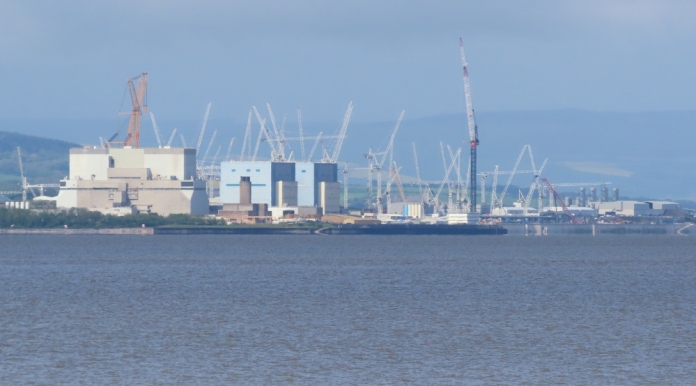Hinkley Point has responded to new concerns raised by a leading environmental group over the impact of the nuclear plant on eels in the Bristol Channel.
Concerned about the potential implications for migratory fish species, including the critically endangered European eel, the Sustainable Eel Group says it is “disinclined to support the Hinkley Point C development unless significant modifications are made to the existing proposals.”
The Sustainable Eel Group (SEG) is the largest and highest profile non-governmental organisation to focus on the recovery of the depleted and vulnerable European eel, a key indicator of water quality and ecosystem viability in temperate rivers and wetlands.
The group’s spokesman said this week: “It is well-documented that the Bristol Channel has the largest, most significant population of migrating eels in the British Isles, recent surveys indicating the annual arrival migration of glass eels at 75 million tonnes, about five per cent of returns in Europe.”
“The designation of the Severn Estuary as a RAMSAR reserve and Site of Special Scientific Interest is testament to the international significance of this wetland landscape.”

“And yet, the developer has thus far failed to demonstrate their commitment to take any measures necessary to ensure net zero impact on the environment, as required by environmental and planning law.”
“There is no evidence of high-quality scientific research having been undertaken to monitor the potential impact on migratory fish populations by the company or its partners. There has been no expressed commitment to consultation with relevant environmental conservation organisations. Further, the legal requirements for a study to determine appropriate countermeasures and fiscal compensation have not been met.”
“The Sustainable Eel Group and its partners calls upon the developer to revise their proposals to incorporate the ‘best available technology’ in the form of an acoustic fish deterrent, and to mitigate potential impacts on wildlife through close communication with experienced environmental conservation professionals. Such safeguards should be expected from an advanced developer operating in a highly protected environment.”
“The organisation will stand with its partners in conservation, in landscape management, and in-land fisheries to oppose any development on the Hinkley Point site until these specifications are accounted for.”
However, Chris Fayers, head of environment at Hinkley Point C, told Burnham-On-Sea.com: “There is a huge amount of research conducted independently by Cefas (Centre for Environment, Fisheries and Aquaculture Science) on the subject, which gives us a clear view on the relatively low impact on fish populations – including eels.”
“There is also a joint study by the Universities of Bristol and Exeter pointing to the risk to eel populations from noise pollution and even the manufacturers of the acoustic deterrent acknowledge that “sound based systems are rarely effective” for eels. In contrast, our proposals for a new salt marsh and fish passes will be ‘eel friendly’ and benefit the population.”
“We have been consulting with the public and environmental groups since January. All views from our public consultation that closed this week are being taken into account as we refine any plans.”







